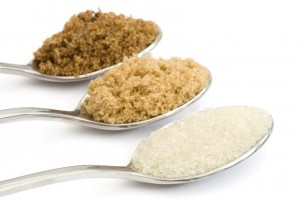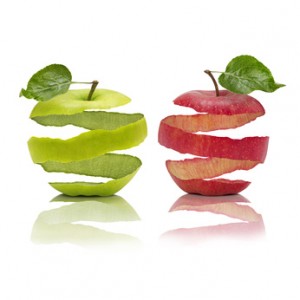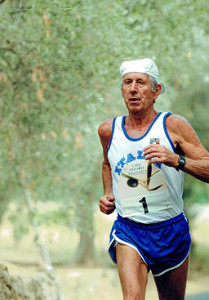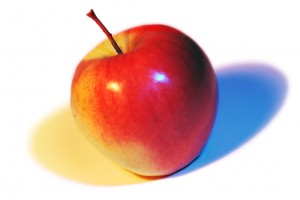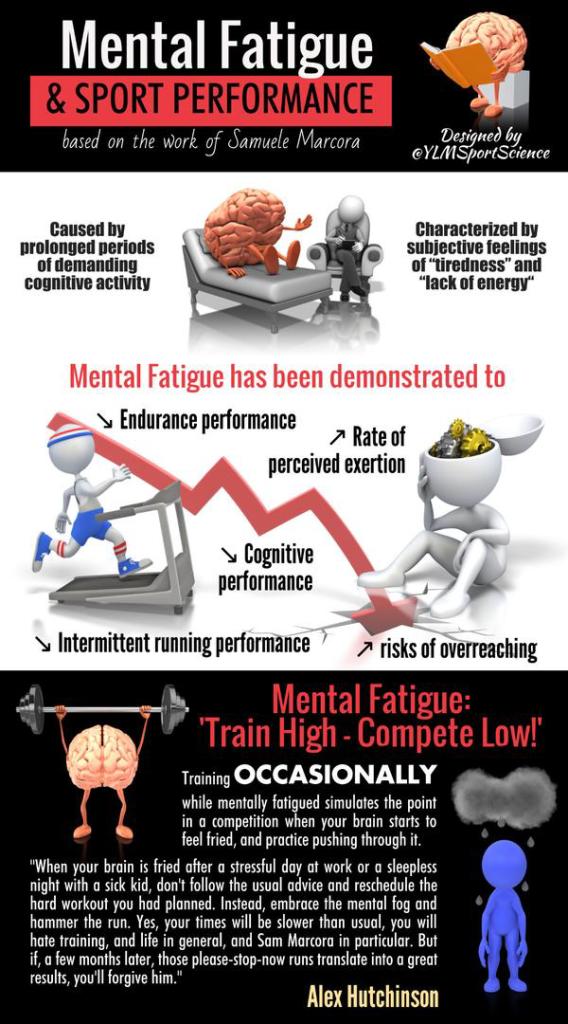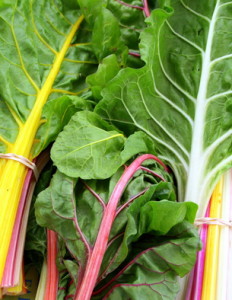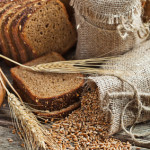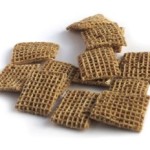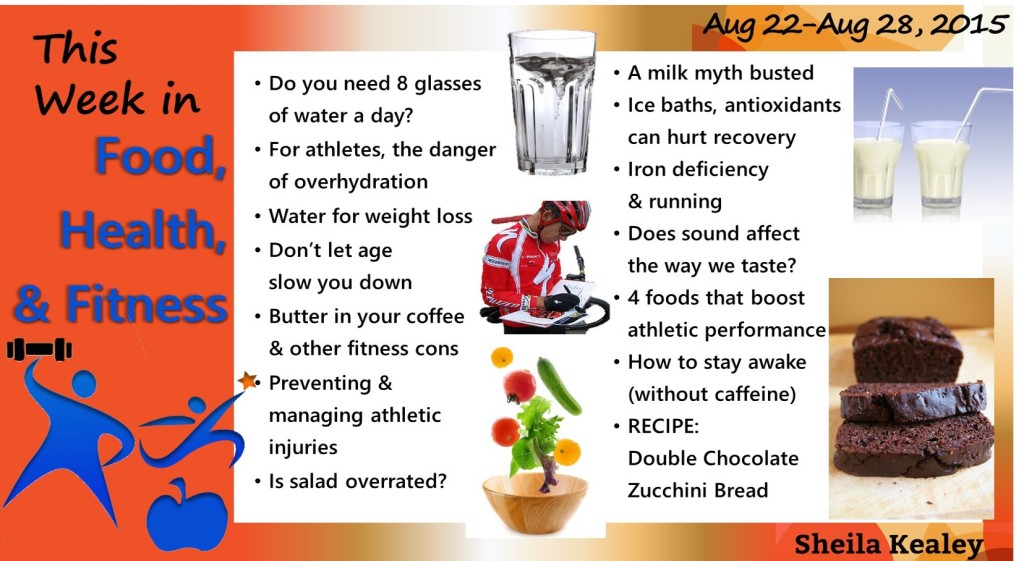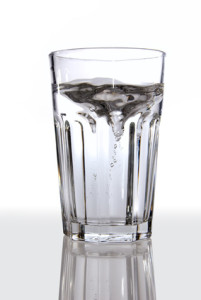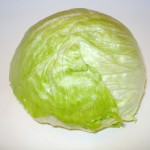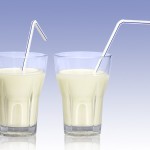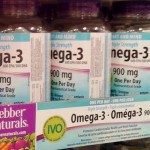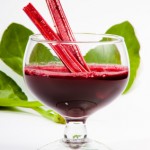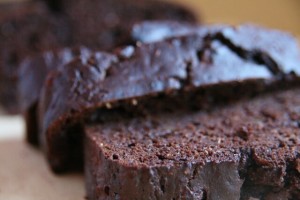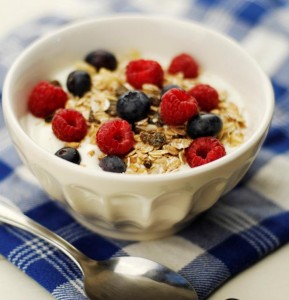 Ah breakfast – my favourite meal! While there has been quite a bit of research on breakfast, it seems the science isn’t entirely clear on the overall health benefits of this first meal of the day. Here’s a brief summary of the latest research into breakfast, and six of my favourite breakfast recipes.
Ah breakfast – my favourite meal! While there has been quite a bit of research on breakfast, it seems the science isn’t entirely clear on the overall health benefits of this first meal of the day. Here’s a brief summary of the latest research into breakfast, and six of my favourite breakfast recipes.
Are There Benefits to Eating in the Morning?
“Breakfast like a king, lunch like a prince, and dinner like a pauper.” – Adelle Davis
There may be some science behind this saying. Research suggests that frontloading calories might help control blood sugar and promote weight loss. One theory is that our circadian rhythms, which influence biological processes and metabolism, make us better at metabolizing meals earlier in the day. For example, this study found that eating the largest meal of the day before 3 PM was more effective for losing weight than eating it after 3 PM.
Blood sugar control. Eating breakfast might help you have better blood sugar control over the course of the day, with the most recent studies being conducted in people with Type 2 diabetes. These studies found that skipping breakfast lead to blood sugar spikes and impaired insulin response (controlling glucose and insulin has important effects on metabolism and health), and these negative impacts persisted throughout the day (1,2).
Weight control. A lot of the research into skipping breakfast has centered on weight gain. Although earlier observational studies suggested that skipping breakfast leads to weight gain and potential health problems, some investigators are questioning these claims.
Heart disease. Researchers from the Harvard School of Public Health studied breakfast habits in men: this large prospective study found that regular breakfast skippers had a 27% higher risk of heart disease. The authors speculate that skipping breakfast could promote heart disease through its influence on obesity, blood pressure, cholesterol, and diabetes.
Cancer. New preliminary research by investigators at UC San Diego (in a study I was involved with) suggests that increasing the nightly fasting interval reduces the risk of breast cancer recurrence. This doesn’t necessarily mean skipping breakfast, but delaying the morning meal is one way of to extend the time you’re not eating. Alternatively (or additionally) you could also skip any late-night snacking.
At this point, the jury is still out on whether breakfast is the most important meal of the day, at least in terms of weight control. New, more rigorous research like the Bath Breakfast Project will help clarify some important questions about breakfast and health.
Breakfast for Athletes
Although some research is questioning the importance of breakfast, what does this mean for athletes?
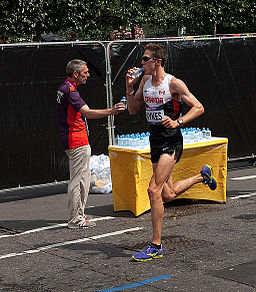
Fasted workouts. Some athletes incorporate fasted workouts into their training (i.e. training in the morning without eating breakfast) to burn more fat; the rationale is that low glycogen levels cause your body to burn more fat for energy. While this sounds compelling, there is not a lot of good research to back up this trend, and this recent study showed no difference in body composition between fasted and non-fasted workouts.
Canadian marathoners incorporated fasted workouts on some days as part of their nutrition periodization leading up to the London Olympics to teach their bodies to burn fat as fuel. If you’re considering this strategy, keep in mind that there is no research to that shows improved performance using fasted workouts, and carefully consider when and how you implement these workouts (probably best during baseline training). Be aware that for questionable benefits, you won’t feel great, and some other workouts might suffer.
Can skipping breakfast hurt performance? Some research shows that skipping breakfast can affect athletic performance later in the day. Even if you eat a big lunch, the effects of skipping breakfast seem to carry over until evening and can hurt your athletic performance and training adaptations. This study found that athletes who ate breakfast completed 4.5% more work in an evening 30-minute bike time trial compared to when they didn’t eat breakfast.
5 Healthy Breakfasts
I am a big proponent of breakfast. If you choose the right foods, breakfast is an excellent opportunity to help you get the protein you need to repair and build muscle, and the nutrients your body needs for good health.
Here are some tips to make your breakfast a healthy one. If you’re stuck in a breakfast rut of eating the same foods day in day out, try one of the recipes below. Varying what you eat will help you get the wide array of nutrients.
General Tips
- Limit fruit juice. Fruit juice is popular in the morning, but it packs a huge dose of sugar with little fiber. Eating fruit is always a better option.
- Supplement packaged breakfast cereals. Even the healthiest packaged cereals (whole grain, low sugar, high fiber) don’t offer much in terms of nutrition (they are mainly carbohydrates, and even whole grain cereals are highly processed). Supplement cereal meals with nuts, fruit, or plain yogurt for extra nutrients, healthy fats, protein, and fiber.
- Don’t skimp on protein. Most people don’t consume enough protein in the morning, even though they are getting enough total protein by the end of the day. New research shows that protein distribution throughout the day is important: your body needs about 20 to 30 grams of protein at a time for muscle repair and muscle building processes, and many people fall short of this at breakfast – but eat two to three times the amount they need at dinner (and more than 25 g protein at a time doesn’t build or repair more muscle). This distribution is especially important for athletes and older individuals who require more protein overall. You can find out more about your protein needs in this article.
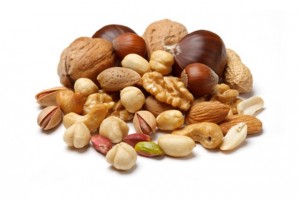 Add nuts and seeds. Use nut butters, or sprinkle nuts and seeds on your cereal. Nuts and seeds are full of healthy fats and important minerals.
Add nuts and seeds. Use nut butters, or sprinkle nuts and seeds on your cereal. Nuts and seeds are full of healthy fats and important minerals.- High calcium for cyclists and other athletes at risk for stress fractures. Athletes lose calcium through sweat during exercise, which puts them at risk for bone loss, especially if their activity is non impact since it doesn’t benefit bones. A study in female cyclists found that eating a dairy-rich meal 90 minutes before riding can counter bone loss. The pre-ride calcium-rich meal keeps blood calcium levels stable, so your body doesn’t borrow calcium from your bones to replace what’s lost in sweat.
Breakfast Ideas
Mixed Berry Yogurt with Almonds
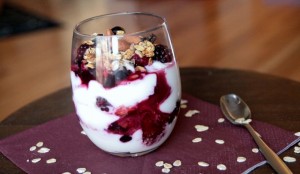 This is a fast and easy breakfast, snack, or dessert that is high in protein. You can prepare this ahead of time so that breakfast is waiting for you when you open the fridge. For breakfast on the go, layer it in a small mason jar with a lid.
This is a fast and easy breakfast, snack, or dessert that is high in protein. You can prepare this ahead of time so that breakfast is waiting for you when you open the fridge. For breakfast on the go, layer it in a small mason jar with a lid.
Simple Peanut Maple Granola (3 Ingredients!)
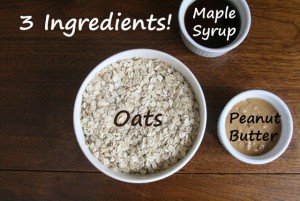 You won’t find a granola that’s easier to make than this one, and it’s a lot more healthful than store-bought granolas and most home-made varieties, which can be very high in calories and sugar. Most granolas are made with some type of oil, but this granola uses nut butter instead. This substitution delivers great flavors and really boosts the nutrition (you’ll get more fiber, protein, and minerals).
You won’t find a granola that’s easier to make than this one, and it’s a lot more healthful than store-bought granolas and most home-made varieties, which can be very high in calories and sugar. Most granolas are made with some type of oil, but this granola uses nut butter instead. This substitution delivers great flavors and really boosts the nutrition (you’ll get more fiber, protein, and minerals).
I like to add nuts, seeds, and dried fruit to this basic granola, and often lighten it up by mixing with a lighter/low sugar cereal (whole grain flakes are a good companion for the granola). I usually don’t have a big bowl of this, but combine it with other foods – it’s really good in this Mixed berry parfait with almonds.
Baked Mediterranean Frittata
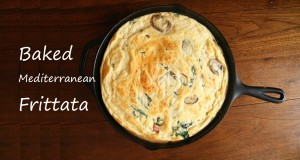 This frittata is a great way to eat some veggies in the morning, and you’ll get some good quality protein from the eggs and cottage cheese. It’s really good for any meal, so make it for supper, and enjoy the leftovers for breakfast (it’s delicious hot or cold).
This frittata is a great way to eat some veggies in the morning, and you’ll get some good quality protein from the eggs and cottage cheese. It’s really good for any meal, so make it for supper, and enjoy the leftovers for breakfast (it’s delicious hot or cold).
This fritatta features spinach, a nutrition powerhouse full of vitamins A and C, folic acid, fiber, magnesium, and carotenoids. Spinach is also rich in dietary nitrates, which can help athletic performance.
Traditional Swiss Oat Muesli
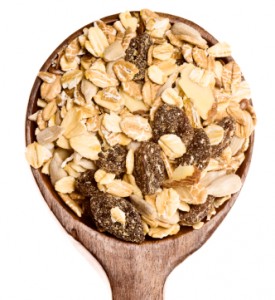 Here’s a simple and nutritious way to serve oats. This healthy muesli recipe is a variation of the traditional Swiss breakfast food developed around 1900 by Swiss physician Maximilian Bircher-Benner for patients in his hospital (the Bircher-Benner Clinic). This muesli is wonderful with the addition of unsweetened applesauce or grated fresh apples, or other seasonal fresh fruit. Mix up your favorite combination at night to have a hearty and nutritious breakfast on hand in the morning!
Here’s a simple and nutritious way to serve oats. This healthy muesli recipe is a variation of the traditional Swiss breakfast food developed around 1900 by Swiss physician Maximilian Bircher-Benner for patients in his hospital (the Bircher-Benner Clinic). This muesli is wonderful with the addition of unsweetened applesauce or grated fresh apples, or other seasonal fresh fruit. Mix up your favorite combination at night to have a hearty and nutritious breakfast on hand in the morning!
Strawberry Banana Smoothie
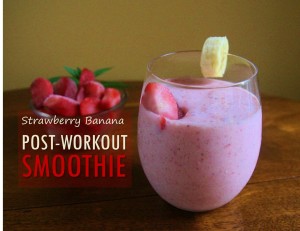 This smoothie is quick to whip up in the morning. It combines strawberries, bananas, Greek yogurt, milk, and maple syrup to deliver a delicious drink that has over 20 grams of protein. The strawberries are rich in vitamin C, fiber, folate, and potassium. Berries also contain anthocyanin, a phytochemical that helps fight oxidative cell damage that can lead to chronic diseases including cancer, diabetes, and heart disease.
This smoothie is quick to whip up in the morning. It combines strawberries, bananas, Greek yogurt, milk, and maple syrup to deliver a delicious drink that has over 20 grams of protein. The strawberries are rich in vitamin C, fiber, folate, and potassium. Berries also contain anthocyanin, a phytochemical that helps fight oxidative cell damage that can lead to chronic diseases including cancer, diabetes, and heart disease.
Fabulous Fruit Tart in a Walnut Crust
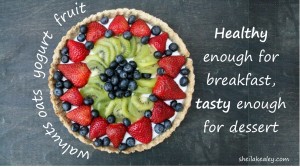 Dessert for breakfast? You bet! This crust features two nutrition all-stars – walnuts and oats; the filling is protein-rich Greek yogurt; and the topping, nature’s bounty of colourful fruits full of health-promoting compounds. Just one piece has a whopping 1,715 mg of potassium, a mineral many people don’t get enough of in their diet.
Dessert for breakfast? You bet! This crust features two nutrition all-stars – walnuts and oats; the filling is protein-rich Greek yogurt; and the topping, nature’s bounty of colourful fruits full of health-promoting compounds. Just one piece has a whopping 1,715 mg of potassium, a mineral many people don’t get enough of in their diet.
__________________
* London 2012 Marathon photo By Surreal Name Given (Olympic marathon mens 2012 Uploaded by tm) [CC BY 2.0], via Wikimedia Commons
Share This: